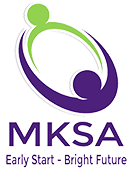Are You and Your Children Washing Your Hands Properly?
October 4, 2018
Kids are back to school, cold weather is coming and we’ll be spending more time indoors. It seems like a perfect time to review handwashing practices to keep everyone clean and healthy. Did you know that frequent handwashing is one of the best ways to protect yourself, your family and others from getting sick?
While it seems simple enough, there are some dos and donts for washing your hands, including how and how often. If you’re not washing properly, you’re missing out on its benefits. Did you know the Centers for Disease Control and Prevention calls handwashing a “do-it-yourself” vaccine? Studies show that frequent handwashing helps prevent the spread of certain illnesses, including stomach bugs, strep and the flu. With most children picking up 6-10 colds each year, handwashing is an easy preventive measure.
Some handwashing facts:
-For every 15 seconds of handwashing, 10 times more bacteria are removed.
-A research study showed that school children who washed their hands had 51% fewer sick days due to stomach bugs and 24% fewer sick days due to colds.
-Compared to dry hands, damp hands are 1,000 times more likely to spread bacteria.
-Hands spread approximately 80% of common infectious diseases.
-Only 1 out of 5 people wash their hands before preparing food.
-95% of people either don’t wash their hands, or don’t wash properly after using a public restroom.
It’s also worth noting that antibacterial soaps, such as those containing triclosan, are no more effective at killing germs than is regular soap, and they may lead to antimicrobial-resistant bacteria. As of 2016, liquid, foam and gel hand soaps, bar soaps and body washes containing antibacterial ingredients can no longer be marketed to consumers. If you or your child are not near running water, hand sanitizer can be used in a pinch. Be sure the sanitizer contains at least 60% alcohol and is used properly: apply gel to the palm of one hand, rub your hands together, covering all surfaces, until hands are dry. Be sure to supervise young children using sanitizer; swallowing these products can cause alcohol poisoning.
When should you wash your hands?
Always wash:
–Before, during and after preparing food, especially raw meat, poultry or fish
–Before eating food
–Before treating wounds or caring for a sick person
–Before inserting or removing contact lenses
–After using the bathroom
–After changing diapers or helping a child use the bathroom
–After contact with bodily fluids
–After treating a cut or wound
–After touching an animal, animal food or treats, animal cages or animal feces
–After touching garbage or outdoor garbage pails
–After blowing your nose, coughing or sneezing (try to cough or sneeze into your elbow or shoulder)
It’s also a good habit to teach children to wash hands when they come home from school. This is especially important if they are going to eat a snack as soon as they come home. You can teach children to Wet-Lather-Scrub-Rinse-and-Dry. Those five simple steps are all it takes.
How to wash your hands properly:
-Turn on water and wet your hands, preferably with warm water.
-Apply soap and lather well.
-Rub hands together, palm to palm; clean all surfaces including fronts and backs of hands, wrists, fingers, between fingers and under fingernails.
-Scrub your hands for at least 20 seconds. You can hum the “Happy Birthday” song from beginning to end twice, and that about covers it.
-Rinse your hands well under clean, running water.
-Dry your hands with a clean towel or paper towel and use the towel to turn off the faucet.
-If you’re in a public place, use the paper towel to open the (dirty!) bathroom door as well.
It’s important to teach children how to wash their hands, and to encourage them to wash frequently. If a child can’t reach the sink, explore keeping a step stool handy. Make handwashing an important and fun part of your day to keep you and your family as healthy as possible! For more resources, including handwashing videos, and some additional hygiene tips, read more here.
Note: The information in this article is for informational purposes only. It is not an attempt to diagnose or treat any medical condition. Always consult your child’s pediatrician with any specific medical questions. MKSA is also available to answer questions about child development. Contact us at 516-731-5588 or www.mksallc.com.
Sources:
Centers for Disease Control and Prevention Handwashing
Mayo Clinic Handwashing Dos and Donts
Duquesne University School of Nursing Proper Handwashing Techniques and Hygiene Tips: Guide for Teachers and Parents
Fastmed Back to School Checklist: A Handwashing Lesson
